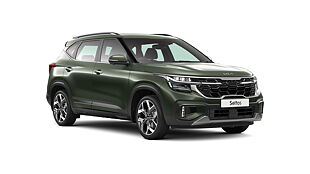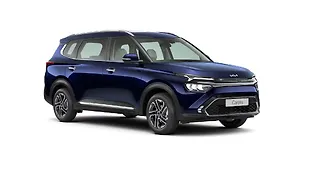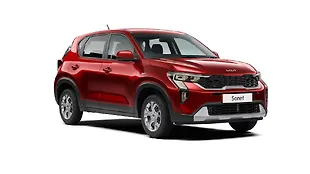Introduction

I haven’t driven a whole lot of electric cars in my life. But, the few that I have, have always been on top of their game. And expensive. And futuristic. No wonder I have never imagined owning one.
The Kia Soul EV though, is different. It’s still on top of its game –which we will get to in a bit – but it’s also very mainstream. And, it doesn’t cost the earth. But, given that it costs twice as much as its petrol-powered twin, well we still won’t call it great value.
Now, the Soul EV isn’t coming to India – well, not just yet, any way. But, it does tell us how the future Kia EV for India will drive and feel.
The Powertrain
One can have the Soul EV in two versions – the long range and the mid range. We had the former. It uses a 64kwh battery, which is liquid cooled, and it promises a range of 452km. Yes! That is outstanding. And even after one discounts the ‘ideal-test-conditions’ optimism, there’s still over 300km to be had on a single charge.

Now, if you are a cynic like me, you might think that this long range is courtesy an anemic motor. But, no. The electric motor is a 150kw unit with almost 400Nm of torque. This torque figure is almost as much as the Toyota Fortuner lists!
Not surprisingly then, the Soul EV does the 0-100kmph dash in less than eight seconds. Top speed, however, is a limited 155kmph. But, given how effortlessly it gets there, you unintentionally find yourself cruising at top speed nearly all the time when on the motorway. But thankfully, then the satnav chimes in. And, it warns you about being ridiculously over the speed limit. Which is also a reminder that spending time in a Korean jail isn’t something to look forward to.
The Drive
Yes, we are in Korea. But on the friendlier south side. And, this isn’t a short, around a go-kart type of EV drive. We are driving from Seoul (in peak hour traffic) to Gapyeong. An almost 150km round trip that involves motorways, single carriageways, twisties, and significant elevation changes. Not to mention some hard charging locals who ensured that we kept that right foot pinned. EV or not, something like ego rarely takes a backseat.
But even so, the range readout on the Soul EV didn’t come down drastically. And at the end of the day we still had over 200km of range left when we pulled into our hotel in Seoul. But, it’s the drive en route that really was a revelation.

For starters, the throttle response and the torque delivery on this EV are instant. It’s not snappy, mind you, just very alert and always there like a good butler on your beck and call. And, I can’t tell you enough, how easy it makes for driving in stop and go traffic, especially when you consider the turbo autos we are beginning to live with on a daily basis today.
Then when you get on the motorway, there’s no engine or exhaust noise, just a very quiet cabin. Talk about having brilliant NVH! Plus, there isn’t much of wind noise either in the Soul. Yes, you can hear the tyres from time to time as the road surface changes, but again, it’s not intrusive. It’s almost like high-end luxury serenity inside this EV’s cabin.

And when you get to a winding road, you can feed in the power with precision, courtesy the instant and seamless throttle and power delivery. It just takes the guessing game away and makes for a purer, more direct driving experience. Sadly, the Soul’s steering or chassis or even the tyres are not up for this directness. But, imagine this throttle directness in a sportier chassis. And, of course more performance. It would be perfect.

The Car

But, Soul is no sportscar. It is an urban tool that also works pretty well on intercity jaunts and hilly terrain. And to me, it doesn’t look bad either. Moreover, it has a feature packed cabin.
On the comfort and convenience end, there’s a good looking, all TFT screen for instrumentation. It also doubles up as a detailed driver information system. There’s a touchscreen multimedia system, digital climate control system, wireless charging for the cellphone, electric power seats, and a head-up display. In terms of driver aids, there’s adaptive cruise control, collision warning, lane keep and change assist, and ESP. Plus, you get airbags and ABS.

What’s more, and this is crucial, the Soul EV feels and drives like a normal car. It doesn’t have special needs. It doesn’t throw tantrums. And, though it does take forever to charge when plugged into a normal household socket; when charged, it does go on for pretty long.
Now, if you add fast chargers and some subsidy to the mix in the Indian context, a car like the Soul EV, begins to make a lot of sense.


























